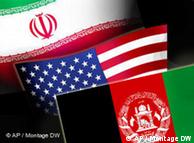
On October 30, 2009, the U.S International Trade Commission decided to open an anti-dumping and countervailing investigation into Chinese seamless steel pipes referred to generally as Oil Country Tubular Goods (OCTG). They are mainly used for oil drilling.
A few days ago, the Commission decided to slap Chinese steel-pipes exporters with tariffs ranging between 10.36% and 15.78%. An additional 96% tariff rise may be on the horizon in the spring.
The complaint, brought forward by 7 American OCTG producers and the United Steelworkers (USW) - a very powerful labour union - was not the first time the U.S. steel industry got its way. In 2002, the George W. Bush administration, under political pressure from Congress, imposed a 30% tariff on steel imports from major European and Asian partners (although it was lifted the next year.)
This case itself is, on the surface, a typical trade dispute.
The USW and the producers allege that Chinese producers benefit from massive government subsidies and dumping margins ranging from 40 to 90 percent. According to the USW, the increase in Chinese imports of steel pipes are made worse by the global recession that increased the impact on jobs in the steel and pipe manufacturing sector. USW president, Leo Gerard, claims that 2,400 jobs have been lost as a result since the beginning of 2009. Considering the OCTG industry employs roughly 6000 workers, this represents about 40% of jobs, a sizable figure indeed.
The Chinese, for their part, blame the loss of jobs on external factors they claim are totally out of their control. Daniel Porter, a lawyer representing the Chinese steel exporters, said the U.S. OCTG industry was hurt by a boom-and-bust cycle that resulted when the price of oil soared to about $140 a barrel in the summer of 2008, only to drop below $50 less than a year later. Higher oil prices spurred more drilling, which caused oil companies to order more of the pipes. Those orders dried up when prices fell, causing a drop in demand for steel pipes. Which "has nothing to do with imports”according to Porter.
But under the surface, this seemingly minor trade irritant may be a harbinger of bigger problems to come as a result of the massive structural problems in both economies.
On the U.S. side, the debt burden is clearly unsustainable, and there is no doubt that for the economy to recover sustainably, it will have to produce more than it consumes. This means exporting more than it imports which would reduce the current account deficit. In this light, it seems like a sensible strategy to curb Chinese imports taking jobs and market share away from U.S. workers and firms (Paul Krugman estimates 1.4 million jobs lost to Chinese mercantilist policies.) But what if the U.S. is protecting the wrong industry? What if its comparative advantage in steel and steel-byproducts production, is no longer there? This report by Howard F. Rosen reveals just that. The U.S. should be focusing on restructuring its economic machine towards goods and services it can export as a result of its competitive advantage, not defending an industry that is no longer competitive - textbook 101 economics and the therapy U.S. trade officials and economists have been preaching to the world for decades.
On the Chinese side, the problem is one of excess capacity created by the same mercantilist policies that are hurting other economies. A devalued currency in combination with inefficient state-owned and/or heavily subsidized exporting firms are causing more to be produced than can be sold on world markets. This means that should Western markets (especially the U.S.) further cut-back on Chinese imports in a bid to recalibrate their fiscal and trade balances - which they will inevitably have to do - Chinese exporters would be in even more trouble. These firms would inevitably have to shut down and lay off workers - not something China's rulers want to see. All the more reason for China to commit to creating a domestic market base at a faster rate, which will only come when the average Chinese consumer begins to save less and spend more.
(photo from Technosoft Resources)


















